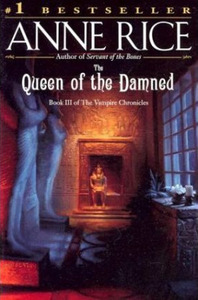Take a photo of a barcode or cover
Plot or Character Driven:
Plot
Strong character development:
Complicated
Loveable characters:
Complicated
Diverse cast of characters:
Yes
Flaws of characters a main focus:
Yes
reflective
slow-paced
Plot or Character Driven:
A mix
Strong character development:
Complicated
Loveable characters:
Complicated
Diverse cast of characters:
Yes
Flaws of characters a main focus:
No
adventurous
dark
funny
mysterious
tense
slow-paced
Plot or Character Driven:
A mix
Strong character development:
Complicated
Loveable characters:
Yes
Diverse cast of characters:
Yes
Flaws of characters a main focus:
Yes
dark
slow-paced
Plot or Character Driven:
Character
Strong character development:
Complicated
Loveable characters:
Complicated
Diverse cast of characters:
No
Flaws of characters a main focus:
No
adventurous
dark
emotional
mysterious
reflective
slow-paced
Plot or Character Driven:
A mix
Strong character development:
Complicated
Loveable characters:
Yes
Diverse cast of characters:
Yes
Flaws of characters a main focus:
Yes
I'm glad I ran through these Anne Rice books because they're much better than I expected them to be, but I also think I've reached my limit with this specific series. It looks like she has another one of interest, which I may try soon, though.
The first two books of the Vampire Chronicles are atmospheric and mesmerizing and mysterious. There's something glorious about immortals suffering from ennui and ignorant of their own history and their seret history of the world. What's more interesting than this idea that vampires have existed for thousands of years, yet the only ones Lestat and Louis discover are just a few hundred years old? There's the implication that immortality murders the immortals.
That's amazing!
In the previous novel, we meet some of the truly ancient, which was interesting. In this novel, those ancients take center stage and I'm a bit more indifferent to the result. It's still atmospheric and heady, but losing the strong voice of Louis or Lestat is somewhat problematic. As is the explication of the vampiric history. I mean, it's fascinating and some immensely powerful worldbuilding, but I also lost that element that I didn't know I needed. The strange sort of fatalism and fugue of the immortals, desperate for life yet unable to survive through their immortal deaths.
The Queen of the Damned, unfortunately, was more interesting to me as a statue than as an actual character. Even that element that Marius discusses in the previous novel is fascinating. These truly ancient creatures who stare, open eyed, endlessly ahead of them but make no movements and speak no words. Creatures who know the history of the world, the history of the vampires yet refuse to do anything but stare blindly ahead and respond to nothing. And yet sometimes they do move! But always when Marius is away.
The senselessness of it is amazing. And so, now that they become real characters, a bit of what I loved about the series is lost.
So it goes.
Still, this novel is powerful and does what it does better than most novels. I'm honestly continually surprised that Rice is such a good writer. Maybe I shouldn't be, but I am. Unfrotunately, this novel lost something that was precious to me about these vampires.
I also feel it rounds out the story of Lestat, so, despite there being like ten more novels, it's unlikely I'll return to them unless someone convinces me that they're great.
The first two books of the Vampire Chronicles are atmospheric and mesmerizing and mysterious. There's something glorious about immortals suffering from ennui and ignorant of their own history and their seret history of the world. What's more interesting than this idea that vampires have existed for thousands of years, yet the only ones Lestat and Louis discover are just a few hundred years old? There's the implication that immortality murders the immortals.
That's amazing!
In the previous novel, we meet some of the truly ancient, which was interesting. In this novel, those ancients take center stage and I'm a bit more indifferent to the result. It's still atmospheric and heady, but losing the strong voice of Louis or Lestat is somewhat problematic. As is the explication of the vampiric history. I mean, it's fascinating and some immensely powerful worldbuilding, but I also lost that element that I didn't know I needed. The strange sort of fatalism and fugue of the immortals, desperate for life yet unable to survive through their immortal deaths.
The Queen of the Damned, unfortunately, was more interesting to me as a statue than as an actual character. Even that element that Marius discusses in the previous novel is fascinating. These truly ancient creatures who stare, open eyed, endlessly ahead of them but make no movements and speak no words. Creatures who know the history of the world, the history of the vampires yet refuse to do anything but stare blindly ahead and respond to nothing. And yet sometimes they do move! But always when Marius is away.
The senselessness of it is amazing. And so, now that they become real characters, a bit of what I loved about the series is lost.
So it goes.
Still, this novel is powerful and does what it does better than most novels. I'm honestly continually surprised that Rice is such a good writer. Maybe I shouldn't be, but I am. Unfrotunately, this novel lost something that was precious to me about these vampires.
I also feel it rounds out the story of Lestat, so, despite there being like ten more novels, it's unlikely I'll return to them unless someone convinces me that they're great.
dark
emotional
reflective
tense
fast-paced
Plot or Character Driven:
Character
Strong character development:
No
Loveable characters:
Yes
Diverse cast of characters:
No
Flaws of characters a main focus:
Yes
adventurous
dark
mysterious
reflective
medium-paced
Plot or Character Driven:
Character
Strong character development:
Complicated
Loveable characters:
No
Diverse cast of characters:
Complicated
Flaws of characters a main focus:
Yes
Read it in discussion with my partner who loved this book, and I feel the context they brought really elevated the experience. Off the bat, it’s my favourite Vampire Chronicles book so far, both in respect of doing interesting things with the concept and structure and of Anne Rice finally discovering what a paragraph break is.
It’s perhaps unfair to compare them as exactly as the books are very unlike each other. IWTV is an exploration of the mind and experience of a vampire stripped bare and shown to, in the end, be hollow as he loses everything he loved. TVL is an exercise in exploring the oral tradition, consisting of a series of different people telling their stories with it left to the reader to determine who, if anyone, is credible. This is in some ways the most traditional of the three, concerning how a number of characters deal with a problem (the titular queen has been reawakened and is a tyrant, we need to stop her) rather than being a biography that tells one person’s life story as it winds along.
Of course, while being the most traditionally structured of the series so far, it still does its meandering. The first third consists of a series of seemingly disconnected vignettes of vampires out in the world doing their own thing. Though they are all aware of and reacting to Lestat (now a David Bowie esque musician in the 1980’s) putting on a concert in San Francisco, they are largely separated across the world. Once the main story gets going a hundred pages in, the characters are again separated with one thread following plot developments and another involving a long recounting of backstory, in the fashion of the prior books. It’s very well done and not out of place within this series, but this is a book that requires you to be onboard with Anne Rice’s broad narrative scope as something of a price of admission.
With that said, there’s a lot to love. The Devil’s Minion section is a personal favourite, but the portrayal of ordinary vampire life in modernity, particularly in respect of Baby Jenks, is a welcome addition to the series which has spent a lot of its time in centuries past. Jesse’s divided loyalty is compelling to me, and I’m an especially big fan of how the plot line with Maharet evokes themes of ancestry and connection to the past.
This is also the first book, to my memory, to make the queer elements explicit. Where the previous stories used vague language of companionship, Louis and Lestat here self-describe as being in love, and Armand and Daniel also describe themselves as lovers. It’s very heartwarming as a reward for persistence and the ending of the book, though reportedly undermined by future canon, could serve as a great capstone to the trajectory of Loustat coming to understand one another and recognise their forms of mutual love. The pledge as well for vampires to form a deeper community is similarly undermined, I am told, which is a shame since I felt it was a perfect antidote to the issues of loss of memory Akasha represented.
Mentioning Akasha, I think she was a very interesting villain and I really enjoyed her. Her eventually stated objective (which I won’t spoil, but it is very of its time and interesting to dissect within the context of the show’s now explicit queerness) is one thing, but (as Cathal helpfully observed) she is a nest of contradictions. A big theme of the previous books has been characters looking for grander significance and meaning within their cursedness, where there is in fact none to be found, and she is a victim of this too, constantly trying to contextualise herself within history and myth even as she tries to stand astride it. Fascinating character.
Overall, really enjoyed it. Like I did with IWTV, I don’t think this book should have had sequels, as I think the ending is very well contained, but alas. We’ll see how the next ones get on.
It’s perhaps unfair to compare them as exactly as the books are very unlike each other. IWTV is an exploration of the mind and experience of a vampire stripped bare and shown to, in the end, be hollow as he loses everything he loved. TVL is an exercise in exploring the oral tradition, consisting of a series of different people telling their stories with it left to the reader to determine who, if anyone, is credible. This is in some ways the most traditional of the three, concerning how a number of characters deal with a problem (the titular queen has been reawakened and is a tyrant, we need to stop her) rather than being a biography that tells one person’s life story as it winds along.
Of course, while being the most traditionally structured of the series so far, it still does its meandering. The first third consists of a series of seemingly disconnected vignettes of vampires out in the world doing their own thing. Though they are all aware of and reacting to Lestat (now a David Bowie esque musician in the 1980’s) putting on a concert in San Francisco, they are largely separated across the world. Once the main story gets going a hundred pages in, the characters are again separated with one thread following plot developments and another involving a long recounting of backstory, in the fashion of the prior books. It’s very well done and not out of place within this series, but this is a book that requires you to be onboard with Anne Rice’s broad narrative scope as something of a price of admission.
With that said, there’s a lot to love. The Devil’s Minion section is a personal favourite, but the portrayal of ordinary vampire life in modernity, particularly in respect of Baby Jenks, is a welcome addition to the series which has spent a lot of its time in centuries past. Jesse’s divided loyalty is compelling to me, and I’m an especially big fan of how the plot line with Maharet evokes themes of ancestry and connection to the past.
This is also the first book, to my memory, to make the queer elements explicit. Where the previous stories used vague language of companionship, Louis and Lestat here self-describe as being in love, and Armand and Daniel also describe themselves as lovers. It’s very heartwarming as a reward for persistence and the ending of the book, though reportedly undermined by future canon, could serve as a great capstone to the trajectory of Loustat coming to understand one another and recognise their forms of mutual love. The pledge as well for vampires to form a deeper community is similarly undermined, I am told, which is a shame since I felt it was a perfect antidote to the issues of loss of memory Akasha represented.
Mentioning Akasha, I think she was a very interesting villain and I really enjoyed her. Her eventually stated objective (which I won’t spoil, but it is very of its time and interesting to dissect within the context of the show’s now explicit queerness) is one thing, but (as Cathal helpfully observed) she is a nest of contradictions. A big theme of the previous books has been characters looking for grander significance and meaning within their cursedness, where there is in fact none to be found, and she is a victim of this too, constantly trying to contextualise herself within history and myth even as she tries to stand astride it. Fascinating character.
Overall, really enjoyed it. Like I did with IWTV, I don’t think this book should have had sequels, as I think the ending is very well contained, but alas. We’ll see how the next ones get on.
the majority of the book was dreadfully boring I fear. But I liked some of the Lestat chapters and I thought akasha was fun and I liked the devils minion chapter Ok bye
adventurous
dark
slow-paced
Plot or Character Driven:
A mix
Strong character development:
Complicated
Loveable characters:
Yes
Diverse cast of characters:
Yes
Flaws of characters a main focus:
Yes






